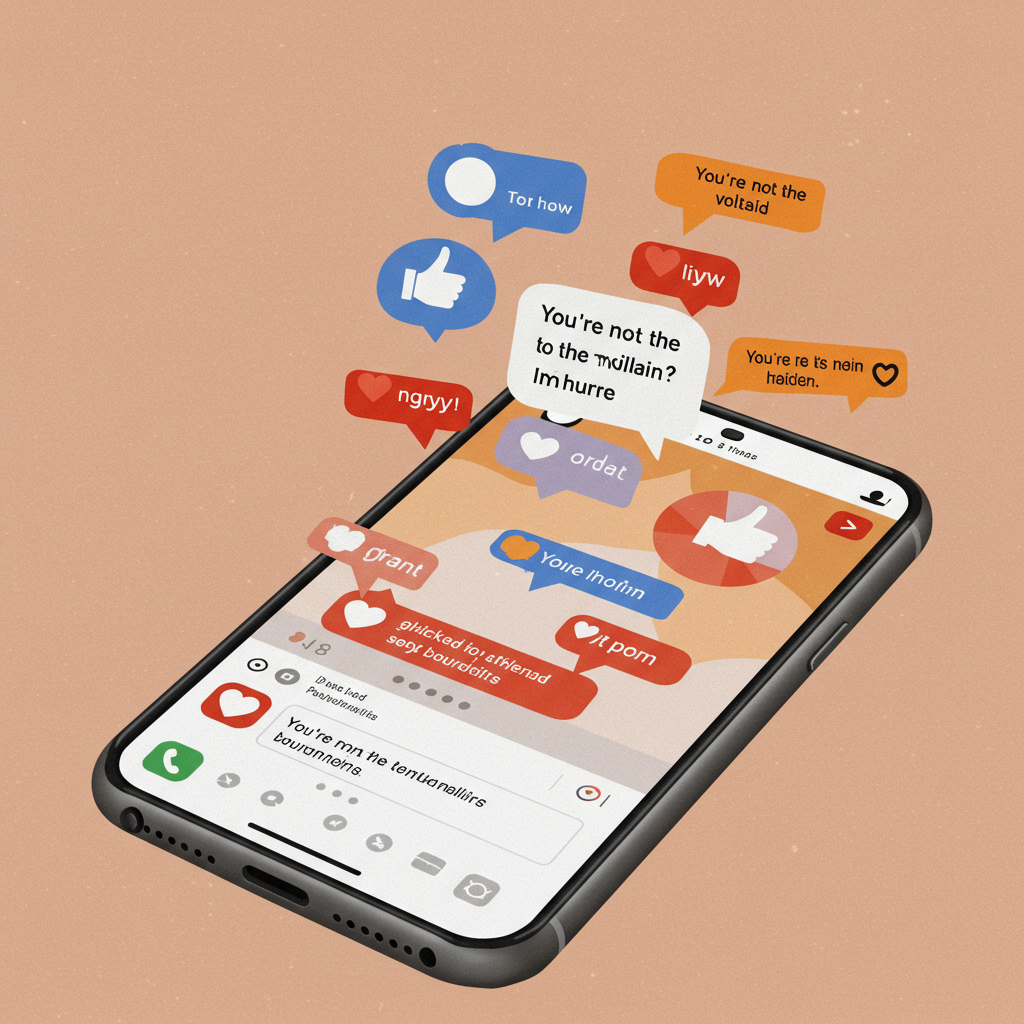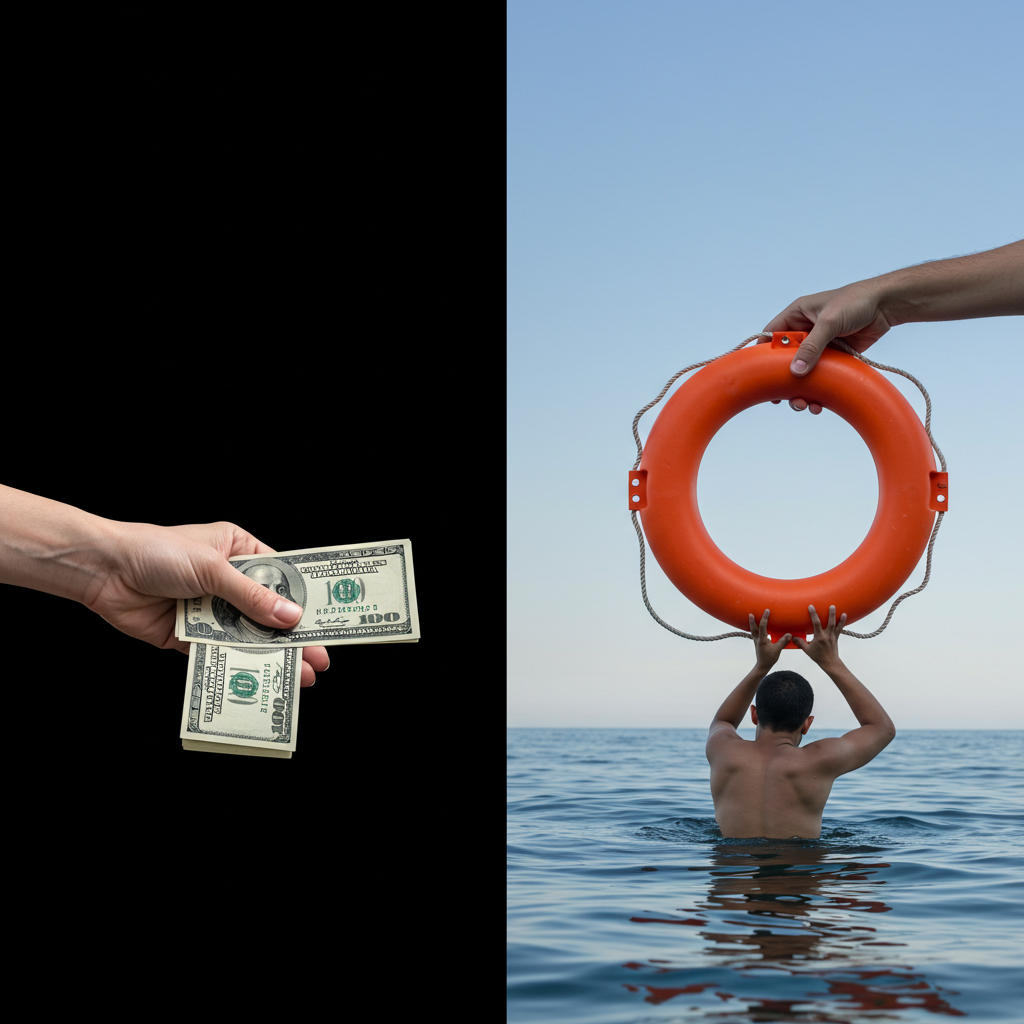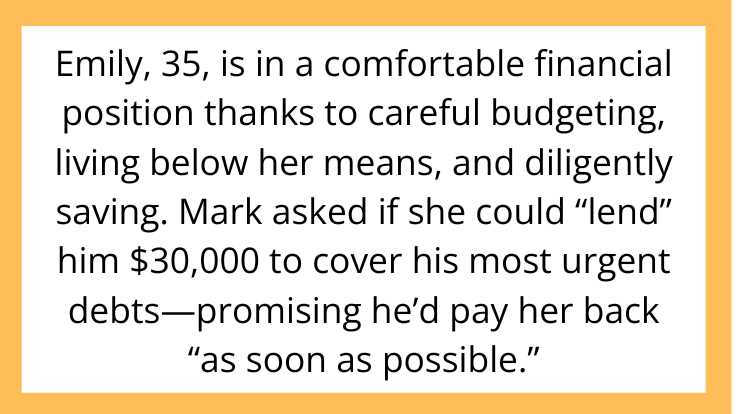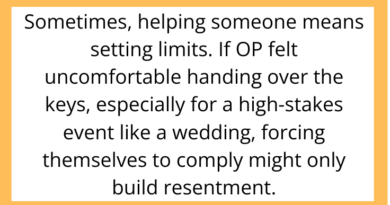AITAH for Refusing to Help My Brother Pay Off His Debt After He Spent Thousands on Luxury Vacations?
When family asks for help, most of us feel obligated to pitch in. But what happens when that help feels more like enabling bad decisions than providing genuine support? In today’s AITAH scenario, a woman grapples with whether protecting her finances makes her selfish—or simply responsible.
Here’s how it all unfolded.
The Situation: A Lifetime of Irresponsible Spending

The original poster—let’s call her Emily—shared on r/AITAH that her older brother, Mark, has always been terrible with money. Throughout his twenties and thirties, Mark splurged on lavish vacations, luxury gadgets, and a flashy car he couldn’t afford. Whenever anyone raised concerns, he brushed them off, insisting he would figure things out eventually.
Now 38, Mark has finally hit a wall. He maxed out several credit cards and took out personal loans totaling over $60,000. The interest alone is burying him. Faced with the possibility of bankruptcy, he turned to Emily for help.
The Request: A Bailout That Feels Like a Trap

Emily, 35, is in a comfortable financial position thanks to careful budgeting, living below her means, and diligently saving. Mark asked if she could “lend” him $30,000 to cover his most urgent debts—promising he’d pay her back “as soon as possible.”
Emily was hesitant. This wasn’t the first time Mark had asked for money. A few years ago, she gave him $5,000 to cover a “temporary shortfall,” which he never repaid. She knew this situation was much bigger and much riskier.
When she told Mark she couldn’t help him this time, he was furious. He accused her of turning her back on family, reminding her of all the times he’d “been there for her emotionally.”
Feeling guilty, Emily posted to Reddit: AITAH for refusing to help my brother get out of debt?
The Internet Reacts: Sympathy, But Firm Boundaries

The AITAH community didn’t hold back. While some users sympathized with Mark’s anxiety over debt, the majority agreed Emily was not the villain.
Top Reasons Emily Was Justified
-
Pattern of Behavior: Mark’s spending wasn’t a one-time mistake—it was decades of poor choices.
-
No Repayment History: He never repaid the previous loan, making this new request even riskier.
-
Enabling vs. Helping: Giving Mark money now would only teach him that someone would always rescue him.
-
Personal Responsibility: Mark is an adult who needs to face the consequences of his actions.
One highly-upvoted comment summed it up perfectly:
“Bailing him out is just paying for his lifestyle. He needs to learn how to live within his means.”
The Counterargument: Family Obligations
However, some people argued that if Emily has the means, she should consider helping—especially if bankruptcy could have lasting consequences for Mark’s future. They noted that family support isn’t just financial prudence; it’s compassion.
Still, even those voices emphasized that any help should come with clear boundaries and accountability, like:
-
A formal repayment plan
-
A requirement that Mark attend financial counseling
-
An agreement that this is a one-time solution
The Bigger Issue: Enabling vs. Supporting

This situation isn’t just about money. It’s about the difference between genuinely helping someone in crisis and rescuing them from the consequences of their own patterns.
Emily didn’t refuse to help because she was cruel or indifferent. She refused because she knew that writing a check wouldn’t change Mark’s habits—it would just delay the inevitable.
What Emily Could Do Instead

Refusing to pay off the debt doesn’t mean abandoning her brother completely. Here are constructive alternatives she might consider:
-
Offer Emotional Support: Be there to listen without judgment.
-
Help with Practical Solutions: Assist him in finding a credit counselor or bankruptcy attorney.
-
Set Clear Boundaries: Let Mark know this is not personal—it’s about financial sustainability.
-
Consider a Small Loan with Conditions: If she feels comfortable, she could offer a smaller amount tied to proof of concrete steps like closing credit cards or starting a repayment plan.
The Takeaway: Saying “No” Doesn’t Make You Heartless

Too often, people feel guilted into sacrificing their own security because someone else made poor choices. But self-preservation isn’t selfishness—it’s wisdom.
Emily has worked hard to build financial stability. She has no obligation to jeopardize her future because Mark refused to live within his means.
Sometimes, the most loving thing you can do is let someone face their own consequences.



